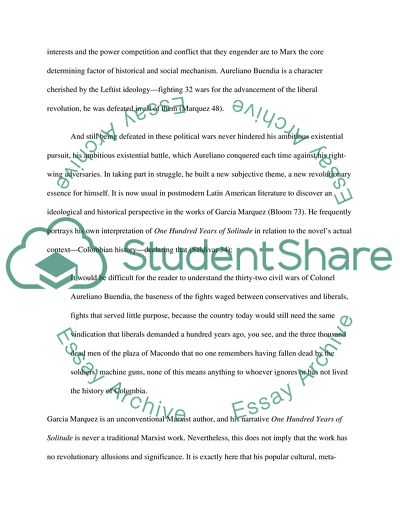Cite this document
(A Marxist Reading of One Hundred Years of Solitude Research Paper, n.d.)
A Marxist Reading of One Hundred Years of Solitude Research Paper. Retrieved from https://studentshare.org/literature/1829766-research-paper-final-draft
A Marxist Reading of One Hundred Years of Solitude Research Paper. Retrieved from https://studentshare.org/literature/1829766-research-paper-final-draft
(A Marxist Reading of One Hundred Years of Solitude Research Paper)
A Marxist Reading of One Hundred Years of Solitude Research Paper. https://studentshare.org/literature/1829766-research-paper-final-draft.
A Marxist Reading of One Hundred Years of Solitude Research Paper. https://studentshare.org/literature/1829766-research-paper-final-draft.
“A Marxist Reading of One Hundred Years of Solitude Research Paper”, n.d. https://studentshare.org/literature/1829766-research-paper-final-draft.


